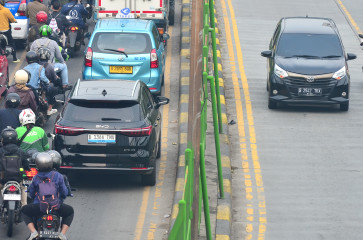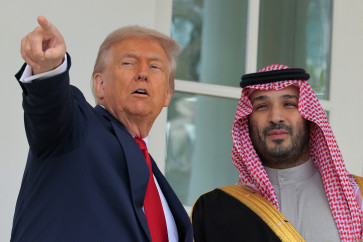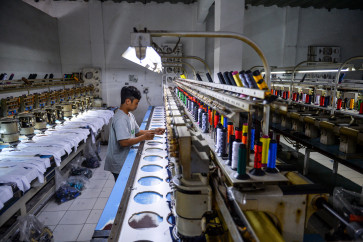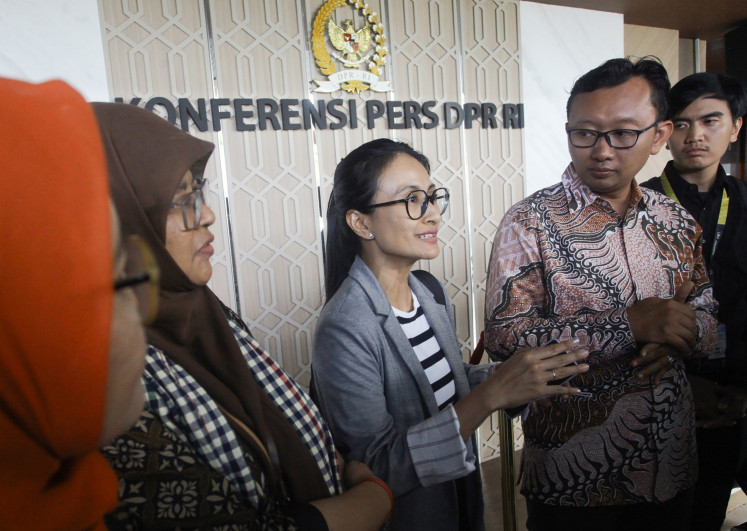Popular Reads
Top Results
Can't find what you're looking for?
View all search resultsPopular Reads
Top Results
Can't find what you're looking for?
View all search results1965 victims: We don’t want communism, just reconciliation
Change text size
Gift Premium Articles
to Anyone
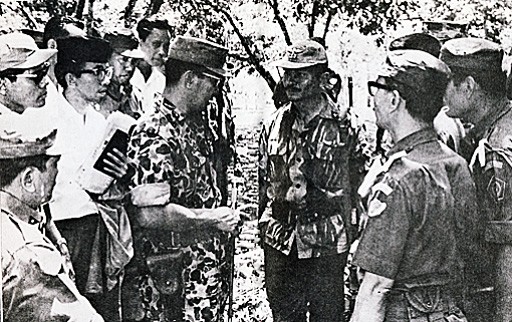 A dark history -- Maj. Gen. Soeharto briefs members of the Army’s Special Forces (RPKAD, now Kopassus) prior to the removal of the bodies of the Army generals who were murdered during an alleged coup attempt on Sept. 30, 1965, which was blamed on the now defunct Indonesian Communist Party (PKI). As the most senior military officer available at the time, Soeharto led all the operations to restore security and impose order in the aftermath of the alleged attempt. (JP/30 Tahun Indonesia Merdeka/-)
A dark history -- Maj. Gen. Soeharto briefs members of the Army’s Special Forces (RPKAD, now Kopassus) prior to the removal of the bodies of the Army generals who were murdered during an alleged coup attempt on Sept. 30, 1965, which was blamed on the now defunct Indonesian Communist Party (PKI). As the most senior military officer available at the time, Soeharto led all the operations to restore security and impose order in the aftermath of the alleged attempt. (JP/30 Tahun Indonesia Merdeka/-)
S
urvivors of the 1965 tragedy have called for reconciliation through the revelation of the truth behind the mass killing of members and sympathizers of the Indonesian Communist Party (PKI) and their families. It is believed that at least half a million people were killed.
Speaking at a national symposium in Jakarta, victims of the 1965 anti-communist purge said reconciliation was needed, because, while some of the survivors had forgiven what had happened, others, especially those living outside Java, still experienced discrimination.
“Many people think of reconciliation as: ‘Please, forgive us for what has happened in the past’. But actually, the word ‘reconciliation’ should come from the victims,” 1965 survivor Ilham Aidit, son of the late PKI leader DN Aidit, said on Monday.
Ilham explained that proper reconciliation should be based on a revelation of the truth both from the perpetrators’ side and the victims’ side. The truth revealed could then be passed on to future generations.
Ilham called on the government to apologize, not to the PKI, but to the victims of the 1965 tragedy.
Haryono, spokesman of Lembaga Perjuangan Rehabilitasi Korban Orde Baru, an NGO working for the rehabilitation of New Order regime victims, said many people had become victims in the 1965 killings, thus it was important for the government to extend an apology.
“We don’t want to re-raise communism in Indonesia. We just ask the President to engage in reconciliation,” said Haryono. He added that while Lt. Gen. (Ret) Sintong Pandjaitan had claimed at the same symposium that the number of the 1965 victims was only around 80,000, the victims actually numbered 45 million. Haryono did not provide details on where the figure of 45 million came from.
Former Army Special Forces (Kopassus) member Lt. Gen. (Ret) Sintong Pandjaitan was a regiment commander of the Army Para Commando Regiment (RPKAD), which led the anti-PKI campaign in areas across Indonesia.
At the symposium, Sintong denied that the number of victims killed after the G30S/PKI incident amounted to hundreds of thousands.
“It’s a lie,” the retired military general said as quoted by tempo.co. “Such a lie has tainted our honor as RPKAD members,” he went on.
Sintong was referring to the results of an investigation by a fact-finding commission formed by President Soekarno in December 1965 and led by then-Home Minister Maj. Gen. Soemarno. The team concluded that the number of victims was 80,000. President Soekarno was not sure about the investigation results and confided that to a team member, Oei Tjoe Tat. “It is around five to six times higher [than the 80.000 figure],” said Oei, as quoted by Julius Pour in his book Gerakan 30 September.
 Revealing the truth -- Catherine Pandjaitan, the daughter of Donald Isaac Pandjaitan, one of six military generals murdered on Sept. 30, 1965, speaks to journalists on the sidelines of a symposium in Jakarta on Monday on reconciliation following the 1965 anti-communism purge.(thejakartapost.com/Anton Hermansyah)
Revealing the truth -- Catherine Pandjaitan, the daughter of Donald Isaac Pandjaitan, one of six military generals murdered on Sept. 30, 1965, speaks to journalists on the sidelines of a symposium in Jakarta on Monday on reconciliation following the 1965 anti-communism purge.(thejakartapost.com/Anton Hermansyah)
The National Commission on Human Rights (Komnas HAM) decided on July 23, 2012, that violence committed after the Sept. 30, 1965, incident amounted to gross human rights violations.
The head of Komnas HAM’s 1965-1966 investigation team, Nur Kholis, said the decision was based on the results of an investigation it had conducted since 2008. “Evidence and results from the examination of witnesses found nine crimes belonging to the category of crimes against humanity,” said Nur Kholis.
He added the collection and evidence and the examination of 349 witnesses were conducted in areas across Indonesia. “We want to show that the incidents occurred evenly in Indonesia.” According to Komnas HAM, the number of those killed in the 1965 anti-communist purge was somewhere between 500,000 and three million people.
Haryono said Indonesia could follow the examples of other Asian countries, such as Cambodia and Vietnam, in reconciliation. People in those two countries could move on from massacres conducted in the past, he said.
President Soekarno’s daughter Sukmawati Soekarnoputri also called for reconciliation.
"I’m ashamed if we compare our country with Cambodia. They are doing good reconciliation. Prince Norodom Sihanouk is really a nationalist. Until now, some Red Khmer former members can get a position in the government. The massacre site of the Red Khmer regime is now a national monument," she said.
Women’s National Committee chairman Yuniati Chuzaifah said the 1965 tragedy not only marked a black chapter in the history of human rights in Indonesia but also created a legacy.
"What happened in May 1998 reflects this. A lesson from what happened in 1965 is that massacres are something allowable in Indonesia. This then triggered other instances of violence, such as the Aceh conflicts, the May 1998 riots and others," she concluded. (ebf)

